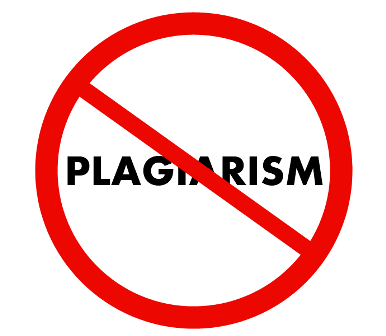Plagiarism
Avoiding plagiarism
 Plagiarism can be a real problem with Extended Essays. It is the first time many IB students have been faced with writing a research paper using the work of others and without guidance many will be unaware as to exactly what constitutes plagiarism. It is also a problem due to the international nature of the IB. Different cultures around the world have different views and practices regarding plagiarism. For example, Dr Chris Shei from the University of Swansea, U.K. has written an article on the problems that Chinese learners face with Western Conventions of plagiarism ( "Plagiarism, Chinese Learners and Western Convention" Taiwan Journal of TESOL. 2005, 2(1): 97-113)
Plagiarism can be a real problem with Extended Essays. It is the first time many IB students have been faced with writing a research paper using the work of others and without guidance many will be unaware as to exactly what constitutes plagiarism. It is also a problem due to the international nature of the IB. Different cultures around the world have different views and practices regarding plagiarism. For example, Dr Chris Shei from the University of Swansea, U.K. has written an article on the problems that Chinese learners face with Western Conventions of plagiarism ( "Plagiarism, Chinese Learners and Western Convention" Taiwan Journal of TESOL. 2005, 2(1): 97-113) ![]() . Many universities recognise this problem and run seminars and workshops for students from particular countries.
. Many universities recognise this problem and run seminars and workshops for students from particular countries.
As a supervisor you have two separate responsibilities regarding plagiarism. You need to inform and guide your Extended Essays students about what constitutes plagiarism and other forms of malpractice (such as collusion) and, once the final Essay is completed, you need to confirm to the IB that it is the student’s own work. A good starting point is the IB publication “Academic Honesty” available from My IB. Many IB schools produce their own document specific for their own particular school and all students must sign a copy as a condition of being accepted for the IB Diploma Programme in that school. A ![]() Presentation on academic honesty devised by Cathy Hill, Anthony Mayrhofer and Robyne Lovelock from St Paul's Grammar School, Australia is available online.
Presentation on academic honesty devised by Cathy Hill, Anthony Mayrhofer and Robyne Lovelock from St Paul's Grammar School, Australia is available online.
Many educational institutions have created good websites which discuss what plagiarism is and why detecting plagiarism is important. These also include details and examples of exactly what is and what is not considered to be plagiarism and examples and information on how to avoid it. Examples include:
University of Northern Carolina
There is also a separate website called Plagiarism.org. This website is committed to providing valuable resources to help prevent plagiarism. To quote directly from the site:
“Plagiarism.org was founded in 1996. With increased interest, Plagarism.org became one of the Internet's predominant anti-plagiarism resources for educators and students alike. Plagiarism.org is the educational arm of iParadigms LLC.
Like many websites, Plagiarism.org has changed its design throughout the years. What hasn't changed is our commitment to providing valuable resources to help prevent plagiarism.
Now in its 20th year, Plagiarism.org has once again been redesigned with the goal of providing even more resources and information. The redesign has also focused on making the website more accessible and user-friendly so that everyone can benefit from the information on Plagiarism.org”
Detecting plagiarism
Unless you are absolutely certain that all the work is the student’s own then the final version of the Extended Essay should be checked using one of the plagiarism detection sites. The viva voce can also provide a useful check if you suspect other forms of malpractice. If you do suspect malpractice then you should write a report and submit it to your IB Coordinator. If an Extended Essay signed by the supervisor is submitted and the external examiner then detects plagiarism or another form of malpractice the school will be held responsible. Many schools take out a school subscription with a site like Turnitin.com. A free 30 day trial for this site is available. Other sites with free (or free trial) plagiarism detectors are:

 IB Docs (2) Team
IB Docs (2) Team